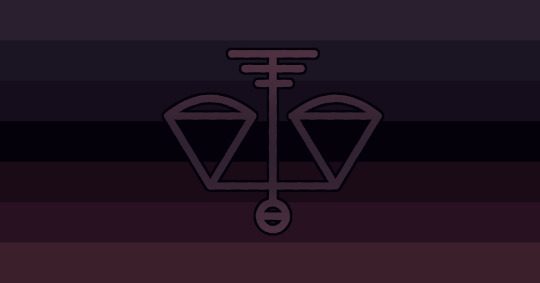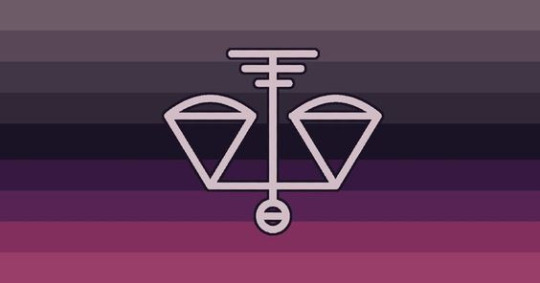#aspd flags
Explore tagged Tumblr posts
Text
SUSPECTED ASPD / MIDNIGHT ASPD


someone who either suspects, has traits of, or otherwise cannot be 100% sure they have ASPD, but still find it important enough to mention as they relate to experiences and need to note how they interact with others.
examples may include people who :
aren't able to properly self-diagnose (ex. memory issues, focus issues, not enough resources) and choose to say they're suspected instead
are in the process of getting diagnosed or on a waiting list
are an alter who has aspd traits while the rest of the system doesn't have these traits
are unsure whether their symptoms are pervasive/affect their day-to-day enough to be a personality disorder
tl;dr : a person with suspected aspd, aspd traits, etc.
#aspd#aspd flags#mad pride#mad flag#liom coining#liom safe#liom#liom term#liomogai#mogai#mogai label#mogai flag#mogai coining#mogai term#i forgor how to tag#anti endo dni#pro endo#endo safe#endogenic safe#endo friendly#cw eyestrain#eyestrain
92 notes
·
View notes
Text




݁ᛪ༙ SIRENOSEXUAL ༢ ㅤ𓈒
ི 🂱 ── Sirenosexual is a sexuality that can be described as only being sexually and romantically attracted to ones chosen person, favored person, favorite person, etc regardless of gender. This term is not fluid, is not a variant of demi, and is not a variant of pan. Alternatively called ‘Sirenorose’.
PERSONALITY DISORDER ONLY TERM

#ི🦴 ─ coined by us#mogai#mogai coining#mogai flag#mogai term#mogai gender#liomogai#liom#liom coining#coining#npd#actually npd#npd culture is#aspd traits#a#aspd#bpd#actually bpd#bpd things#actually cluster b#personality disorder#sexuality#lgbt pride#favorite person#favored person#chosen person#actually antisocial#npd safe#actually narcissistic#did system
271 notes
·
View notes
Text

ೀㅤㅤCluster B attraction flags
Remakes of my old post



FPattraction - BPD exclusive
An aro/ace/apl (depending on how it is used) label where an individual only or mostly feels attraction towards their favorite person. Can be any type of attraction (romantic, sexual, platonic,etc)



ATPattraction - HPD exclusive
An aro/ace/apl (depending on how it is used) label where an individual only or mostly feels attraction towards their attention person. Can be any type of attraction (romantic, sexual, platonic,etc)



CHPattraction + EPattraction - NPD exclusive
An aro/ace/apl (depending on how it is used) label where an individual only or mostly feels attraction towards their chosen₁ and/or equal₂ person. Can be any type of attraction (romantic, sexual, platonic,etc)



EXPattraction + PICattraction - ASPD exclusive
An aro/ace/apl (depending on how it is used) label where an individual only or mostly feels attraction towards their exception₁ and/or partner in crime₂ person. Can be any type of attraction (romantic, sexual, platonic,etc)
ྀི◟ ͜ ̣̣̥⠀Tagging: @heliotropecollective
#🍷 ︵ a lil smth for you#🕯️⸺ siin's coining#mogai gender#mogai term#mogai#mogai coining#mogai flag#liom#liom coining#aroace#aro#ace#aromantic spectrum#asexual spectrum#npd#aspd#hpd#bpd#aplatonic
197 notes
·
View notes
Text

CLUSTER-B EVIL


a term for when you fall under the cluster-b disorders and are evil. this might mean that the user often participates or exhibits traits that are seen as "evil" due to their disorder (ex. having low-empathy and in turn, might have a reputation of hurting people). whether these actions are intentional or not is up to the user. however, i do not condone harming others for whatever reason and using your disorder as a cushion for your actions.
this is incredibly self-indulgent on my end due to how i acted in the past. please take this with a grain of salt as this was made to be silly. i too once was a bpd evil stereotype, so i can make this for a treat.

this term / flag was created by me, but if this was already coined, consider this an alt. flag. i'm sure i'm not the first.
note : this is a re-upload but with a more /srs description than the last. i think people with cluster-b disorders should be able to destigmatize themselves while also being able to express their more negative / "evil" traits that the public hates.

#🌀; expendable#liom#mogai#liom coining#liom community#liom flag#liom friendly#liom label#liom safe#liom term#liomogai#mogai coining#mogai label#mogai term#pro mogai#mogai gender#mogai friendly#mogai flag#mogai safe#mogai community#actually npd#actually bpd#actually aspd#actually hpd#cluster b#cluster b safe#cluster b disorders#i love you guys yawn
84 notes
·
View notes
Note
questioning aspd-culture is: it seems I have all the traits, though I haven't done anything illegal because I live with controling probably bpd parent and have a fairly well-developed rationalization and I have good control over all emotions i may feel because of that (I just suppress them)
Edit: TW/CW uncensored ableist language in the comments (not used in an ableist way - it’s the name of a diagnostic test)
Oh yeah, this is actually super common. That's why a common take amongst non-ableist professionals is that the criteria for lawbreaking also covers rulebreaking including social rules. Any strong desire that has to actively be fought to break laws also can fall under that depending on who you ask if the reason you don't is grounded in something other than morals or respect for the law.
Something I like to bring up as often as I can for people stuck under the misconception of the law breaking thing is that a big thing in pwASPD is a desire for convenience because happiness seems at best temporary and at worst fake, but living a life where everything is fairly convenient is a tangible, achievable task. Hiding a body is not convenient, cleaning up blood is not convenient, hiding from the law is not convenient. Also talking to cops sucks and jail sounds like one giant ASPD flare so screw anything that would make me go there.
Also, remember that you don't have to fit every criterion to have ASPD - it's 3/7 that are persistent and consistent, plus paying attention to associated traits/development criteria and checking for differential diagnoses.
Plain text below the cut:
Edit: TW/CW uncensored ableist language in the comments (not used in an ableist way - it’s the name of a diagnostic test)
Oh yeah, this is actually super common. That's why a common take amongst non-ableist professionals is that the criteria for lawbreaking also covers rulebreaking including social rules. Any strong desire that has to actively be fought to break laws also can fall under that depending on who you ask if the reason you don't is grounded in something other than morals or respect for the law.
Something I like to bring up as often as I can for people stuck under the misconception of the law breaking thing is that a big thing in pwASPD is a desire for convenience because happiness seems at best temporary and at worst fake, but living a life where everything is fairly convenient is a tangible, achievable task. Hiding a body is not convenient, cleaning up blood is not convenient, hiding from the law is not convenient. Also talking to cops sucks and jail sounds like one giant ASPD flare so screw anything that would make me go there.
Also, remember that you don't have to fit every criterion to have ASPD - it's 3/7 that are persistent and consistent, plus paying attention to associated traits/development criteria and checking for differential diagnoses.
#I will say it until I go blue in the face#cluster b disorder criteria are ableist as all hell#they focus on how we affect other people while ignoring how it actually affects us#and that inherently means that they are stereotyping in ways that will exclude pwASPD#Honestly I think some of the associated traits should be added to the list of criteria#not as mandatory things but similar to how it is now where they are on the list of flags for ASPD#aspd-culture-is#aspd culture is#aspd culture#actually aspd#aspd#aspd awareness#actually antisocial#antisocial personality disorder#aspd traits#anons welcome
70 notes
·
View notes
Text






* AntiPlatonic
An aplatonic-spectrum term to signify "different" or "weird" perceptions of platonic relationships that are typically seen by those with ASPD.

This definition is intentionally vague because it is intended to encompass all experiences. For example:
Viewing being friends as something to be 'honoured', or something special that is only bestowed to those you trust.
Friendships being exclusively transactional — if you get no benefit, it's insignificant.
One may not care for social interaction and view friends as too much work / is repulsed by forming bonds / etc
I acknowledge that these experiences are not ASPD exclusive — I wanted this term for myself because my reasons for not wanting friends are too complicated, always fluctuating, & very deeply rooted in my disorder :,) I figured an umbrella term for myself would be nice.

[PT start: Antiplatonic. An aplspec term to signify "different" or "weird" perceptions of platonic relationships that are typically seen by those with ASPD. This definition is intentionally vague because it is intended to encompass all experiences. For example:
Viewing being friends as something to be (quote) honoured (unquote), or something special that is only bestowed to those you trust.
Friendships being exclusively transactional and, if you get no benefit, it's insignificant.
One may not care for social interaction and view friends as too much work/is repulsed by forming bonds/etc
I acknowledge that these experiences are not ASPD exclusive—I wanted this term for myself because my reasons for not wanting friends are too complicated, always fluctuating, and very deeply rooted in my disorder. I figured an umbrella term for myself would be nice .PT end]
Brighter version:


#no flag id#( from,vincent )#🏷️#( flag )#( aspd )#aplatonic#aplspec#apl flag#aplatonic flag#aspd flag#actually aspd#mad coining#mad flag#mad pride#long post#long post cw#cw long post
61 notes
·
View notes
Note
NPD plus ASPD culture is not giving a single shit about how people perceive you, but also being extremely preoccupied with *how much* they do. Like yeah, I'm unforgettable and if you don't remember me then you're a fucking moron and you should die. - ♱

#anon ask#npd culture is#npd safe#actually npd#npd flag#npd tag#npd headcanons#npd system#npd community#npd stigma#covert npd#npd traits#npd thoughts#npd positivity#npd posting#npd things#npd vent#suspected npd#npd#actually narcissistic#narcissistic personality disorder#actually aspd#aspd thoughts#aspd safe#aspd traits#aspd#actually antisocial
60 notes
·
View notes
Text
Cluster B Pride/Support Flags
Antisocial Personality Disorder

Narcissistic Personality Disorder

Borderline Personality Disorder


Histrionic Personality Disorder

ASPD Flag NPD Flag BPD Flag + BPD Flag Update HPD Flag
#aspd#bpd#hpd#npd#cluster b#actually aspd#aspd safe#hpd safe#npd safe#bpd safe#psychology#aspd pride#bpd pride#npd pride#hpd pride#disorder pride#disability pride#alex talks#antisocial personality disorder#borderline personality disorder#narcissistic personality disorder#histrionic personality disorder#repost from main#psychology flags#flags#pride flag
70 notes
·
View notes
Note
What is the difference between sociopath and psychopath?
OH! OH OH OH I LOVE THIS QUESTION. Also this is a massive explanation that really goes in-depth about neurology so I'll do a read more.
The main difference is that a psychopath is born with ASPD. A sociopath develops it during early (we're talking starting off as young as 2) childhood due to severe long-term (several years) abuse and neglect (generally from main caretakers).
There are also some nuances in how a socio's brain works in comparison to a psycho's. But the major difference that really determines all of the minor differences is that a psychopath doesn't necessarily have trauma related to their ASPD, and tends to have a lot less comorbid disorders. A sociopath ALWAYS has trauma that directly caused their ASPD and a fucking CVS receipt of comorbid disorders the large majority of the time.
There are also more sociopaths than there are psychopaths. The physiology of ASPD is that the brain's structure is different from an empathetic person. Specifically in the prefrontal cortex and the amygdala, because there's not enough activity in those areas for someone with ASPD. The prefrontal cortex is involved in decision-making, impulse control, and regulation of social behavior, and the amygdala is involved in emotion processing and fear response. Abnormalities in the amygdala contribute to a lack of empathy and increased aggression (aggression does NOT equal violence in this case, but rather an increased and pervasive level of negative emotion that makes you more likely to act out). Genetics have been proven to play a factor in how likely someone who was born empathetic would develop ASPD.
The difference here is that a psychopath is born with reduced blood flow to those areas. No trauma needed, that's just how they work.
On the contrary, a sociopath develops reduced blood flow to those areas because if you live in an environment that fosters the growth of anti-social traits and behaviors you are not exercising those parts of your brain. I'll go into a deep dive about the neurological aspects of how formative trauma turns into ASPD.
Chronic stress from abuse can impair the development of the prefrontal cortex; reduced activity or structural abnormalities in this area can lead to increased impulsivity and difficulty regulating emotions. The amygdala becomes hyperactive due to repeated exposure to threatening situations. This results in heightened aggression and reduced ability to empathize with others. Abuse can lead to a smaller hippocampus, impairing the ability to process emotions and increasing vulnerability to stress.
Chronic abuse elevates cortisol levels (the stress hormone), which can alter brain function and structure. Persistent high cortisol levels can damage the prefrontal cortex and hippocampus, exacerbating emotional and behavioral regulation issues. Serotonin and dopamine neurotransmitters regulate mood and behavior. Abuse can disrupt their levels, contributing to aggression, impulsivity, and difficulty experiencing pleasure or reward.
The autonomic nervous system (ANS) becomes hyperactive, leading to a state of constant alertness and readiness for perceived threats. This can cause chronic anxiety, irritability, and aggressive responses. Conversely, some individuals may develop a blunted stress response, showing reduced physiological reactions to stress. This can lead to a lack of fear or concern for consequences. (These two may combine so that safe things trigger stress and unsafe things do not).
Abusive environments can impair the development of secure attachments, leading to difficulties in forming trusting relationships. This can foster detachment, manipulative behavior, and a lack of empathy. Inconsistent or abusive parenting can disrupt normal emotional development, making it difficult for individuals to manage their emotions and impulses. This can result in volatile behavior and poor emotional control. Abusive environments often model and reinforce antisocial behaviors. Children learn to cope with stress through aggression or manipulation, which can become ingrained patterns of behavior. Abusive environments can impede moral development, leading to difficulties in understanding and adhering to societal norms and rules. This can result in a disregard for others' rights and a propensity for criminal behavior.
Trauma and abuse can also alter gene expression through epigenetic changes, affecting the brain's development and function. These changes can increase the risk of developing ASPD by influencing genes involved in stress response, emotional regulation, and social behavior.
A lot of people who went through severe childhood abuse may experience anti-social symptoms without having full-blown ASPD. When I was younger I did a genetic test that led to some very fascinating results that now that I'm older and understand my disorder I understand how my ASPD ties directly into my genetic depression, or rather my genetic depression is caused by my ASPD.
I don't process/produce Vitamin B6, B9 (Folate), and B12. These vitamins are crucial for brain function and the production of neurotransmitters. Deficiencies lead to mood disorders, cognitive impairments, and other neurological issues. B vitamins are involved in synthesizing neurotransmitters like serotonin, dopamine, and norepinephrine, which regulate mood and behavior. These are neurotransmitters that act as natural painkillers and mood enhancers. B vitamins play a role in the metabolic pathways that produce endorphins. An inability to properly absorb, process, or produce B vitamins can disrupt these pathways, leading to lower endorphin levels, which can contribute to symptoms of depression and affect overall mental well-being.
Because of how specific my issue is I had to take a specialized blend of B Vitamins. Unfortunately once I turned 18 my parents stopped buying them for me and I haven't had the funds to purchase my own at all since I was cut off (which has led to my mental health tanking). I strongly suggest anyone who deals with anti-social traits in a way that is disruptive to their daily life to look into these. You can't generally find them at a drug store, but they're on Amazon for 25-ish USD for a month's worth bottle. Which is really good because when my parents were buying them two years ago or so they were 40$ a bottle.
I have been on all sorts of mood stabilizing medications, psychosis medications, anti-depressants, anxiety medication, etc. None of them worked because we didn't know what exactly was wrong with me. All it did was make it so I couldn't feel the negative emotions properly, so I was constantly numb. What the vitamins did for me is that they let me process passive endorphin exchange and metabolism for the first time in my life, which meant that there wasn't a drastic barrier between me and positive emotions.
I strongly suggest this for anyone who is also just dealing with mood instabilities/disorders because it helped immensely. I'm bipolar two and I wasn't dealing with any major manic episodes while I was on them for about two years, so it helped drastically in that aspect too.
I know this got a little off the rails, but sociopathy is such a hard disorder to deal with, and it's so demonized by the media. Just telling someone you're a clinical sociopath is enough for them to kick you out of their life, even though it has no reflection on your character and is just an outcome of a horrible, hell-like childhood. So I think it's important for ASPD voices to speak up about the disorder when they can and try to dispel some of the awful stigmatization.

#alex answers#answered ask#thanks for the ask!#clinical sociopathy#clinical psychopathy#psychology#neurology#sociopathy/psychopathy#sociopath vs psychopath#actually aspd#aspd safe#aspd awareness#mental health#mental heath awareness#mental illness#mental disability#disability pride month#aspd flag#aspd pride#apsd voices#sociopath#psychopath#actually antisocial#antisocial personality disorder#personality disorder#cluster b safe#cluster b illness#cluster b disorder
180 notes
·
View notes
Text





@ BPD + ASPD adjacent. ( see also )
An awareness flag for people with [ symptoms of ] both bpd & aspd.
For myself because I wanted a pink one

[Plain text start: Boderline personality disorder and antisocial personality disorder adjacent. An awareness flag for people with (bracket) symptoms of (end bracket) both BPD and ASPD. For myself because I wanted a pink one .Plain text end]
#(⠀⠀00⠀⠀—⠀⠀flags⠀⠀)#mogai coining#mogai term#mogai flag#mogai#actually antisocial#actually aspd#actually borderline#actually bpd#bpd flag#aspd flag
57 notes
·
View notes
Text




cluster b personality disorder flags.
in order: BPD, HPD, ASPD, NPD
feel free to use.
76 notes
·
View notes
Text




「 INVIDEROMANTIC ?! 」
➜ @ A romantic attraction label for queer polyamorous users to express the feeling of envy/jealousy at your partner’s romantic relationship with other partners. Can include feeling inadequate, not good enough, or jealous of how their romantic relationship is compared to yours. this is mainly geared towards people with Cluster B disorders but can be for anyone!!




「 INVIDERSEXUAL ?! 」
➜ @ A sexual attraction label for queer polyamorous users to express the feeling of envy/jealousy at your partner’s sexual relationship with other partners. Can include feeling inadequate, not good enough, or jealous of how their sexual relationship is compared to yours. this is mainly geared towards people with Cluster B disorders but can be for anyone!!
#mogai#liomogai#liom#mogai coining#mogai term#mogai flag#mogai attraction#mogai sexuality#mogai safe#term coining#coining#label coining#sexuality coining#attraction coining#attraction label#sexuality label#ego’s flag#cluster b#actually bpd#actually cluster b#actually npd#actually aspd
93 notes
·
View notes
Text
NPD + ASPD adjacent flag!
[plain text: NPD + ASPD adjacent flag! /end plain text]
After months, I am still on the rocks as to whether I have ASPD, or just display traits. Maybe there are some things we are never meant to know /ref /lyr /lh
So, I made this flag for NPD + ASPD and adjacent! It is general so it can be used by anyone who has either traits of NPD or ASPD or the disorders themselves.


[ID: Two images. The first image is a flag with nine equal horizontal stripes. In descending order, the stripes are dark blood red, berry red, pale brick red, orange, pale yellow, pale grey blue, lavender purple, dark blue, and purple brown. In the center of the flag, there is a white symbol. The symbol consists of an outline of a narcissus flower with the upside down scale ASPD symbol inside. The second image is a flag identical to the first, but lacking the symbol. End ID.]
Flag by me. Colors sampled from the NPD and ASPD awareness flags. Narcissus outline taken from The Noun Project.
Tagging @mad-pride.
Below the cut, I have included the transparent symbol, as well as CMYK versions of the flags! (If you(&) don't know what that means, it's basically the version of the flag in the colors that a printer would output.)

[ID: A white symbol. The symbol consists of an outline of a narcissus flower with the upside down scale ASPD symbol inside. End ID.]


[ID: Two images. Each image corresponds to one of the flags above. They are extremely similar, but there are slight differences in hue and saturation of some of the colors. End ID.]
#fresh scones#pride#mogai#mogai flag#mogai safe#liom#mogai coining#liom safe#pro mogai#liom term#npd#aspd#npd flag#actually npd#npd safe#npd traits#cluster b#actually cluster b#aspd flag#aspd safe#actually aspd#aspd traits#cluster b safe#mad pride#mad pride flag#npd + aspd#npd + aspd flag#mogai friendly#mogai term#liom coining
239 notes
·
View notes
Text






ೀㅤㅤ"MANIPULATOR"
[PT] "Manipulator" [END PT]
"Manipulator" , or Manipulative Personality, is a term for people with Cluster B Personality Disorders (more specifically NPD or ASPD , but not exclusive) that struggle with showing manipulative traits or being manipulative because of their disorder symptoms.
❗ : not made to romanticize or glorify manipulation , only to be used as a self-identifier
ྀི◟ ͜ ̣̣̥⠀ requested by anon.

#🍷. ︵ a lil smth for you#💌mail!#🕯️⸺ siin's coining#mogai#liom#mogai flag#mogai coining#mogai term#liom coining#“manipulator”#manipulative personality#cluster b#npd#aspd#bpd#hpd#personality disorder#antisocial personality disorder#narcissistic personality disorder#borderline personality disorder#histrionic personality disorder#actually aspd#actually npd#mad#mad coining#pd flag
118 notes
·
View notes
Text
Therapy Red Flags And How To Respond
Going on the search for an available mental health professional, that offers the type of therapy/intervention one needs, is already hard enough on its own. The wait lists are long, insurance sometimes refuses to give the okay for it and not every professional makes it easy to book an appointment with them in the first place.
So it takes quite a lot of patience and effort to actually make it to that first appointment with them and nothing is quite as frustrating, as then feeling as if, that professional is doing a horrible job at listening to you and potentially even invalidates you.
This experience is not limited to the first appointment either and while theres sometimes simply the issue, that the chemistry between professional and patient doesn't fit (which is neither their fault, nor yours), sometimes it is due to a professionals red flags and unprofessional behavior.
Those who are not as familiar with what makes a professional a good one and those who may not know their way around the field of psychology as a whole, find themselves at a loss for what to do and how to respond to such situations.
Are the things they are experiencing really red flags and unprofessional behavior? Is that something where you try to go for the open conversation, or is it a sign to look for a new professional? When is the professional the problem and when is it you? What is simply a personal style of conducting therapy and at which point is the professional harming the patient?
While I am not a professional myself, I did study special needs education at uni for two years and am at least sort of familiar with the etiquette and concepts surrounding treatment (which is still not the same as being a trained professional tho obviously) and I have also made my fair share of positive and negative therapy experiences in the position of the patient, so I have some thoughts on this, that I'd like to share.
Therapy is a very individual thing and thus will obviously look different depending on the person who is seeking treatment and the professional who is giving said treatment. Different conditions need different approaches and therapy types, different professionals will have their unique personality styles they bring to the situation and not every professional is licensed to conduct diagnostics, prescribe medication, or refer you for further treatment, so you'll have to search for which professional fits your personal needs.
If you're a very sensitive person, a professional who is immediately very blunt may not work well.
If you're looking to work on your behavior explicitly, a professional who is specialized in working trough & confronting traumatic memories, may not be the ideal fit.
If you're looking for a diagnostic, a professional who isn't licensed to do that, will not be able to help you.
Those are situations where the fit simply isn't right and where no "red flags" are present. You'll simply have to try the next one.
There are however a few "common" red flags for professionals, that go beyond such basics and where the "mistake" is more on the professionals side (tho this is just my personal opinion here and I can only talk about what I experienced, so its an incomplete list that you can add onto!):
1. They do not take diagnoses or suspected conditions seriously
If you go to a professional for the first time and during the intake you list off your previous professional diagnoses and the things those professionals have additionally suspected in you and the new professional goes and immediately disregards those, that is a red flag. Someone who barely knows you, is not able to judge whether previous professionals have made a mistake or not, whether what your symptoms were caused by was puberty/momentary circumstances or not, etc. If they have genuine concerns that you may have been misdiagnosed, after they've worked with you for a while, thats different! But disregarding the work of previous professionals immediately, simply because of their own bias, is a red flag.
2. Seeing medication as the devil you should never touch
A good professional keeps up to date on the research regarding the medication they are allowed to prescribe and only does prescribe them, if the benefits would outweigh the consequences and if they have educated the patient on the side effects of the meds! Its fine if professionals have some reservations regarding specific medication types, due to the available research, but if they try to tell their patients that all medication is bad, thats a red flag! Some patients need anti depressants, anti psychotics, anti anxiety meds, etc. in order to get into a mindset where they can actually participate in treatment and be so stabililized, that they can manage their daily life. Theres no shame in needing help from medication and any professional who tries to tell you the opposite in an inherent fashion, is not one you should trust!
3. If a professional talks about themselves more than you get to talk about yourself
Theres certain therapy types, that benefit from the professional bringing up some personal stories or examples, in order to get the patient thinking, or assess their reaction to a certain type of situation. Its especially helpful when assessing social skills, empathy and the like! But if a professional dominates the conversation with information, that genuinely has no relevance to the patient and doesn't really try to expand onto the patients answers, thats not a good professional. A 45 minute therapy session shouldn't consist of the therapist talking about the animals in her stable and her daughters problems of getting into her uni classes for 30 of them! You're there to talk about your problems and not to have a coffee date with your best friend.
4. When they refuse to diagnose no matter the circumstance
It is perfectly fine for a professional to be careful about putting a label on a patient, especially if they aren't sure whether its the right one and/or aren't a fan of the diagnostic system itself. Professionals get to have their opinions and those do get to influence the way they work! Not every problem actually needs a diagnosis and symptom based work is a thing! If the professional however inherently refuses to diagnose, no matter what they are confronted with, thats a red flag, since they no longer have the patients best interests at heart. Some patients need a diagnosis in order to have access to medication, accommodations, further treatment, care teams, etc. so if they meet criteria and would not be able to get better without those diagnosis blocked treatments, refusing a diagnosis is a red flag!
5. Trying to scare you away from transitioning
If you go to a new professional as a trans person and you've been happily living as your actual gender for some time and maybe already started transitioning (or you're very sure about wanting to do it), it is a red flag, if they try to scare you away from it, especially if they do not know you enough to have genuine concerns about whether or not your transition goals are simply due to identitity issues or trauma. Those situations exist and will need to be ruled out in order for you to receive a gender dysphoria diagnosis, but if you already have one and you're happy as your actual gender, trying to scare you into not transitioning further by showing you botched surgery cases, telling you horror stories, or telling you that your b*obs aren't big enough to need surgery anyway, is not professional behavior. Theres a line between genuine concern and being an ass about it.
6. Throwing around medical terms without being clear about why they are using them
If your professional mentions medical terms for symptoms and/or disorders, or compares your behavior to that of people who have a certain condition, without being clear about whether this is what you have, something they suspect or something that reminds them of you, that is a red flag. A good professional either openly communicates what which term means and why they're using it, or they avoid using them until they are ready to let you know thats the diagnosis you have! If you've been seeing them for a while and if, after you tell them about an experience of yours, they randomly say "yeah thats common for people with ADHD, so no surprises there" without ever having been clear about whether thats something they suspect in you, or whether they are simply comparing your experience to that of an ADHDer, thus leaving you confused and wondering, thats not a good professional. Diagnoses and medical terms have a huge impact and need to be used responsibly and clearly.
7. Immediately declaring puberty as the reason for your behavior
If you tell your professional about an experience of yours (whether you clarify it happened in your teenage years or not) and they immediately respond with "thats just puberty, its normal", without asking follow up questions about whether you're still experiencing that symptom, for how long you have experienced it, how frequently it pops up, etc. thats not a good professional. It not only invalidates how important this experience may be to the patient, but also shows that the professional is incapable of assessing current risks and that they will miss any impact this symptom still has on the patient. Those are also the professionals who will not believe that teenagers can have valid struggles with emotional dysregulation, conduct, impulsivity or psychosis, that go beyond what is common for teenagers and may need intervention.
8. Going back on their word
This sort of ties into previously mentioned points, but if your professional tells you they'll never precribe something or diagnose you, if they tell you they believe you were at fault/it was just puberty, etc. and they later go back on their word and/or it becomes clear, they've stated that, in order for you to think they're not looking into it, just for them to secretly assess you all this time...thats a red flag. If you're conducting therapy in a way that starts with invalidating your patients experiences/needs just to later say "sike!" because you wanted to assess them unaware of it, you will only make them resent and distrust you and you will cause them to refuse to admit to faults/mistakes/experiences, thus skewing the assessment. Its fine to say "I don't know if I can see that yet, but we'll see" or "lets return to that at a later point", but lying to the patient and invalidating them to assess them behind their back really isn't a good strategy.
As already mentioned, therapy is a really individual process and will not always look like having successfull, or good sessions. There will be setbacks, there will be frustration and there will be moments where you will not understand why your professional has done/said something, or you may feel invalidated/not seen. Sometimes it takes a few more sessions to realize, that your professional was actually right about something and you were just not ready to hear it yet. It is a psychs job to challenge your habits and beliefs about yourself and others to get you to look inward and learn how to recognize stuff and help yourself.
That being said, if a professional is outright rude, tries to scare you away from stuff, tries to invalidate you/deny things without knowing you, refuses to openly explain their choices/sentences to you, misuses terms, doesnt bother looking into your file and so on, it may be a good idea to either just leave that professional, or attempt an open conversation where you discuss how you do not find their approach helpful and determine whether thats due to the professionals errors, your own errors, or a lacking chemistry.
Its important to remember: You are there for your own benefit. That is your therapy session and you have a right to declare what you would like to do/discuss. Your psych can direct the sessions if you struggle doing so, they can open the conversation with a story/question and they can suggest topics, but in the end it should be okay if you say "no I'd like to talk about x today" or "I struggle with y, can we discuss strategies" or whatever else. Hell, if you'd use that therapy session to infodump about oven mitts, that should be okay, because you decide how you use the therapy contingent that you have (granted it might be better to actually discuss problems you're having, but I hope you get my point).
Therefore: If your professional does something that you dislike, they make you feel invalidated, or you realize that the therapy type/approach doesn't suit you, you are allowed to speak up and you are allowed to stand up and walk out. You're doing this for yourself and no one else, so YOU need to be happy with it.
That being said, breaking off therapy or walking out isn't actually always needed! Sometimes psychs just forget that not every approach works for everyone, sometimes they are limited in their own way of thinking, or they try to solve problems with approaches that feel natural to them but alien to their client.
Sometimes they are used to having to be gentle and careful with statements, when a client actually prefers straightforwardness, or the other way around.
So you can do what you (technically) should do in everyday interactions: Have a conversation, see if they're able/willing to adjust what they do and if not, you can run for the hills and look for a new professional! Theres absolutely no shame in that and sometimes it takes a few attempts to find the right one! You don't need to accept discrimination and invalidation, you are allowed to look for a better fit!
Other possible reasons to look for a different psych:
• they voice beliefs that you do not agree with
• they do not adhere to client confidentiality
• they refuse to/can't see you as often as you'd need it
• they do not show an interest in acknowledging that theres conditions beyond anxiety and depression
• they try to blame you for things that were not your responsibility
• they share too much of their private lifes with you
• they disregard your wishes in any way thats a dealbreaker for you
• they immediately label your difficulties as not being compliant
• they do not believe in comorbidities, or complex cases
• they refuse stuff out of principle/without giving an explanation
• they do not follow up on providing papers, tests, referrals, etc.
• they consistently are too late for appointments/cut the time short/dont show up at all
• etc.
first posted on my instagram account (same @)
#mental health#mental health education#aspd#actually aspd#mental heath awareness#mental health resource#mental illness#mental heath support#therapy#therapist red flags#red flags#psychology
36 notes
·
View notes
Text

⋆ ASPD4PIC ⋆


⇉ Definition: A x4x term for pwASPD who prefer to interact and be in any kind of relationship with their PIC (Partner in crime)

Coined by: Me Requested by: @cafeinaalterada
Img ID: No ID applicable
Please read pinned post and DNI before interacting


#aspd4pic#myceliumcoining#myceliumrequests#4lcoining#disorcoining#liomogaicoining#mixcoining#flag coining#term coining#word coining#liom coining#mogai coining#queer coining#lgbtqia coining#liomogai#liom#liom flag#mogai flag#mogai term#x4x flag#x4x coining#coining terms#coining post#label coining#aspd#aspd coining#aspd pic#aspd partner in crime#partner in crime#pic
54 notes
·
View notes